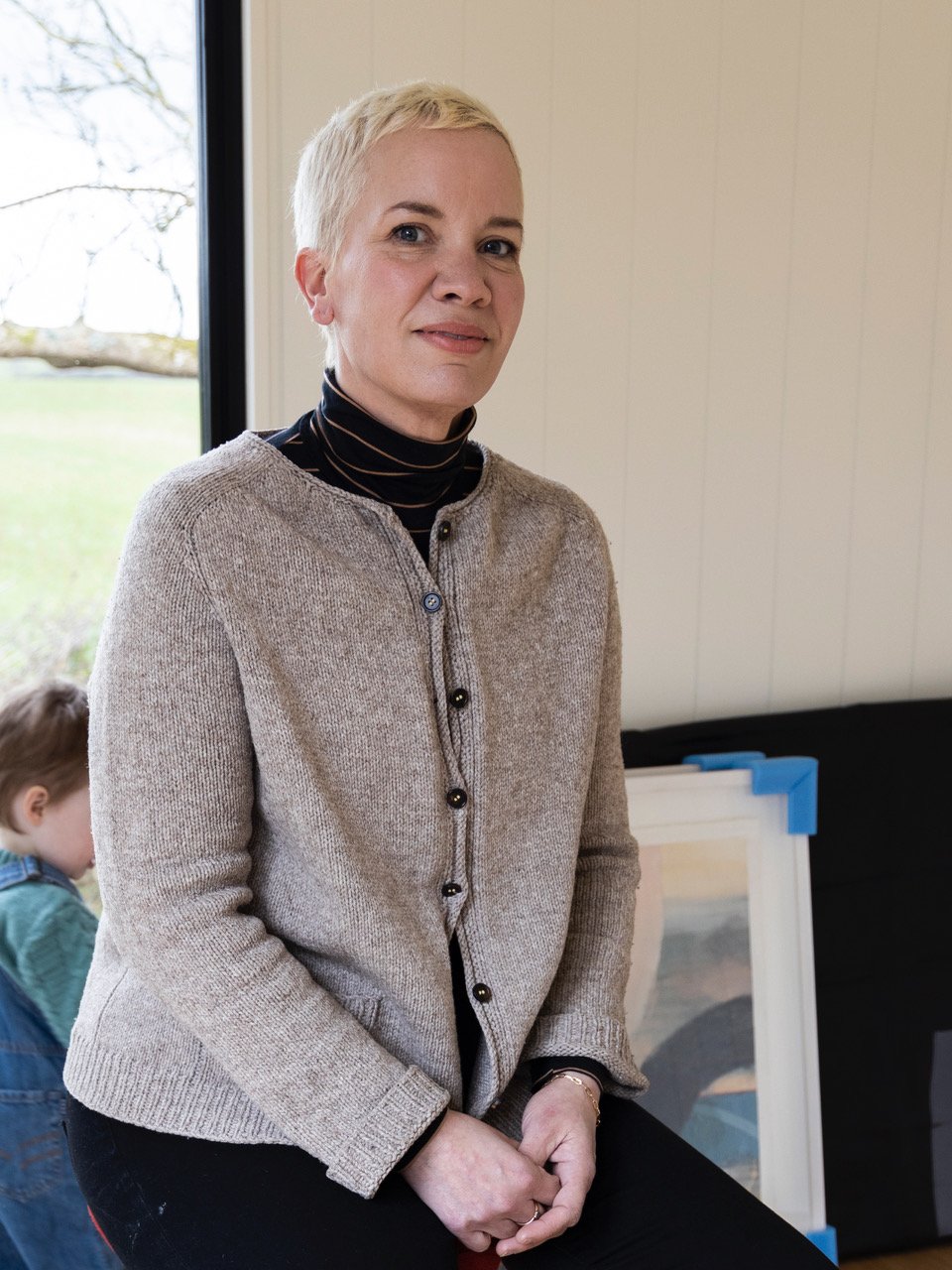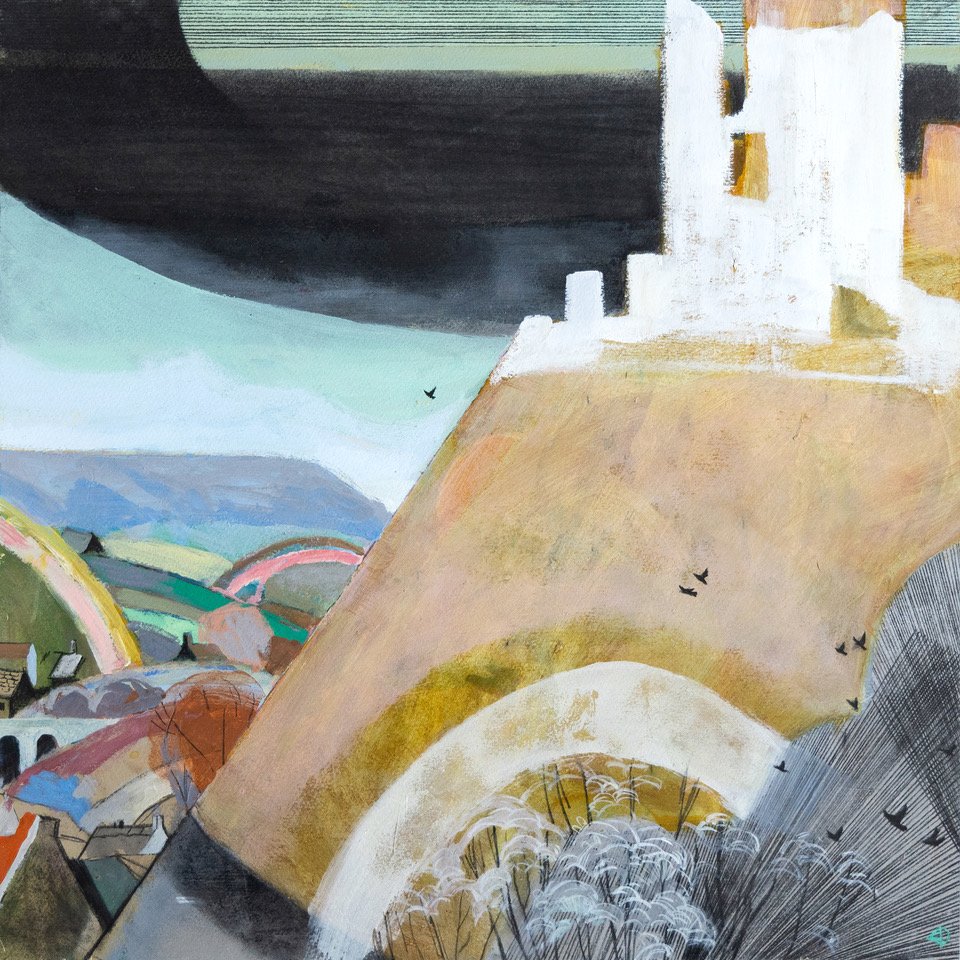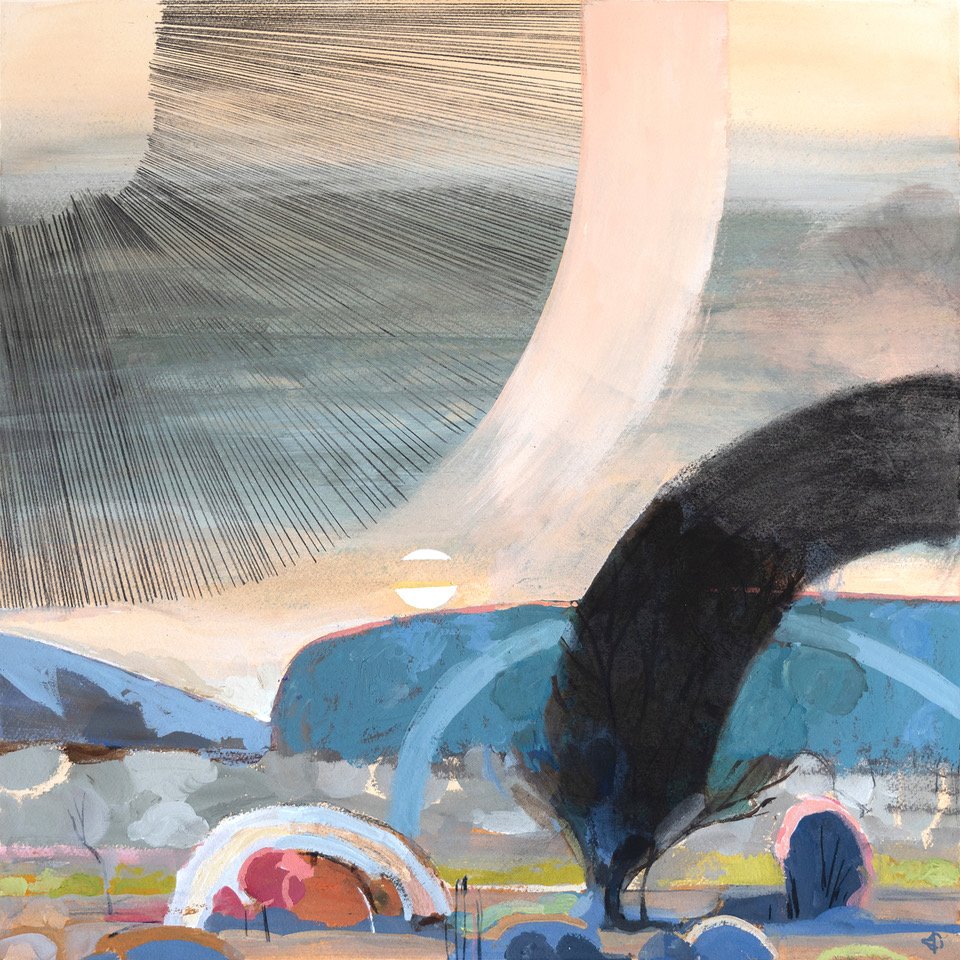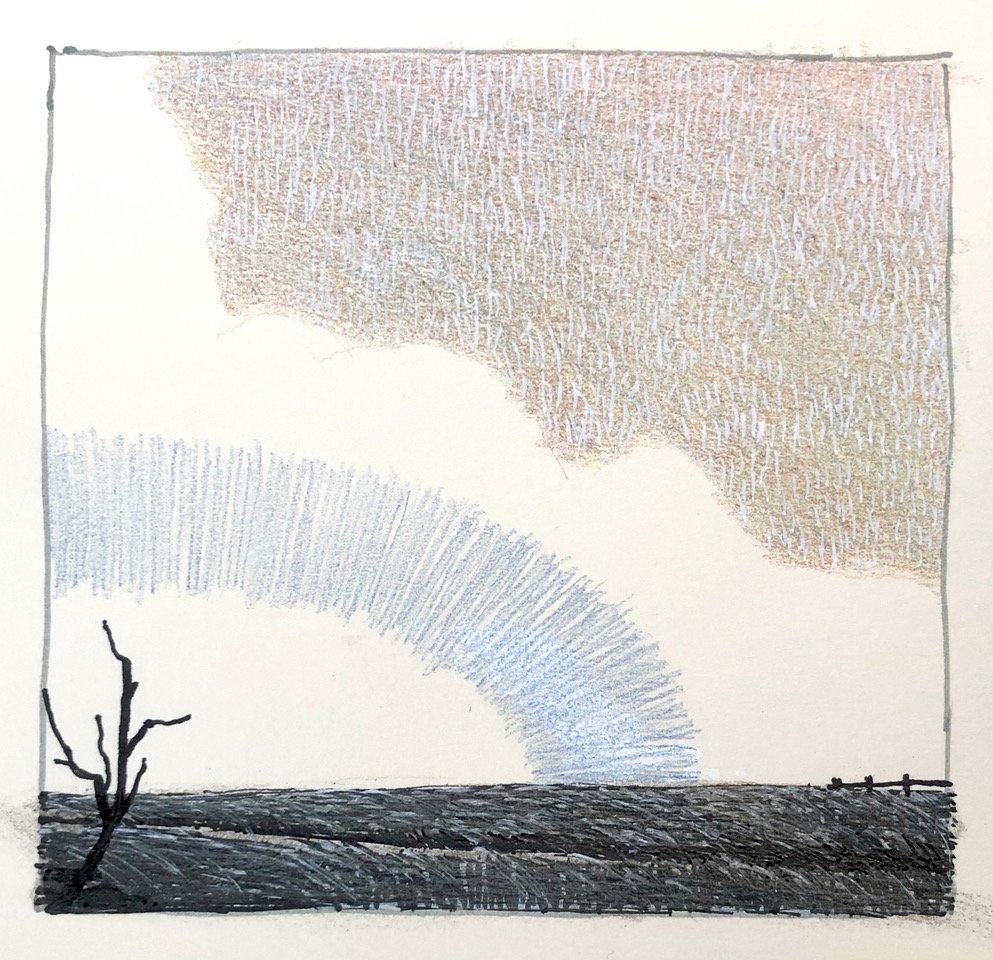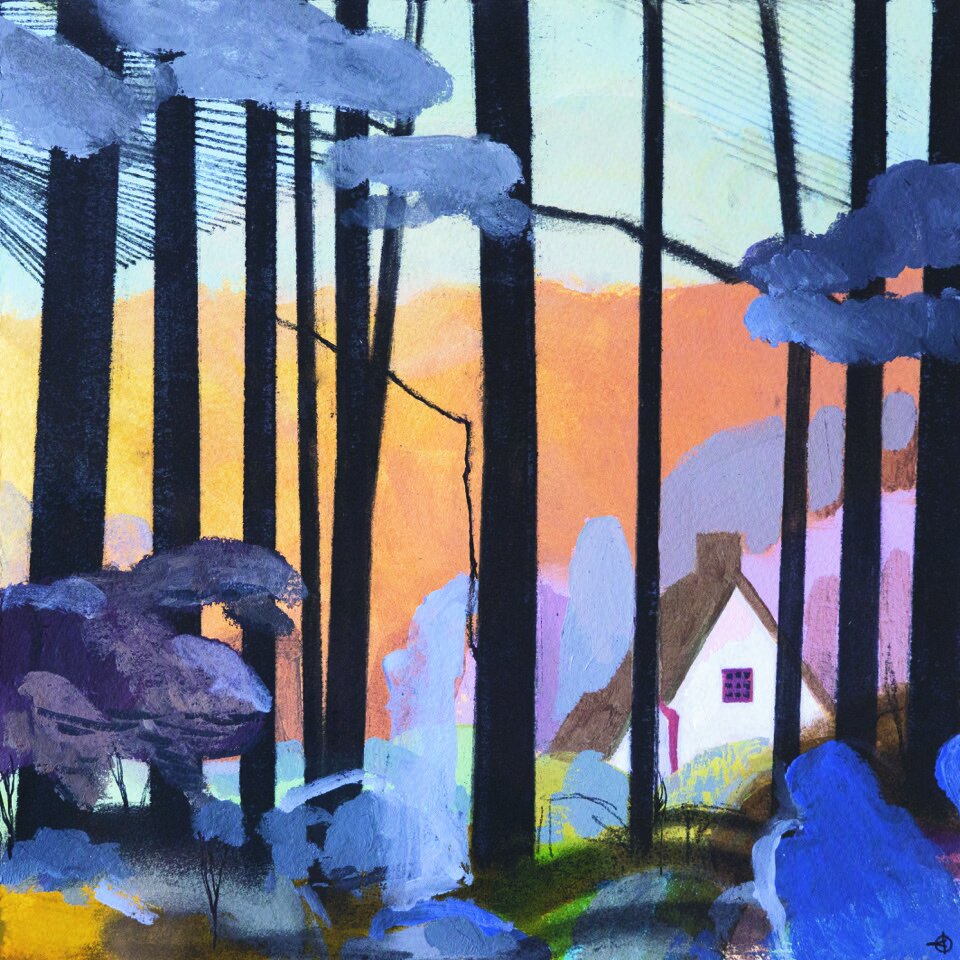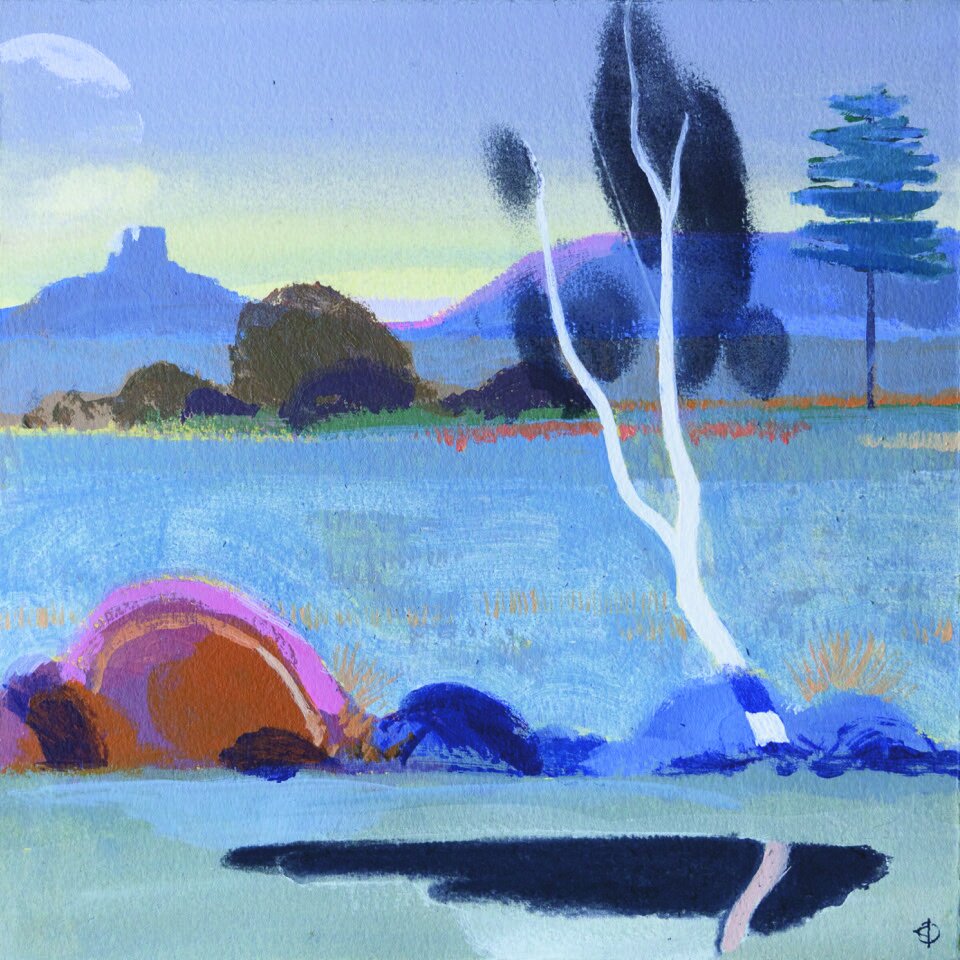ARTIST INTERVIEW: Kimberley Day
Tell me about yourself, describe your journey as an artist
I grew up on the edge of the New forest, Hampshire, but now divide my time between The Isle of Purbeck in Dorset and London where I work.
Drawing and painting has been my main preoccupation since I was around 10. I have a vivid memory of desperately wanting to improve my drawing skills so that I could imitate other artists work as a form of education. I spent my evenings as a teen, pouring over art books trying to glean information or some secret from other artists paintings. If I wasn’t painting then it would be any other craft skill that you care to mention - I’ve probably tried most at some point in my life.
I studied Fine Art at Plymouth University and eventually went on to study for an MA (NFTS/RCA) in ‘Design for Screen’ as I realised I may be able to turn my love for painting in to a more reliable career. This led to me working as a concept artist for films and TV (although I studied to draught and be an art director/designer first and foremost) for the last 20 years. It's a fascinating and satisfying job, but everything I produce is created digitally. My painting has always had to fit around my career so that I am able the get that immediacy and peace that only comes with physically creating work. Over the last few years I have given much more time to my painting - feeling my way through various mediums and finally arriving at painting with Acrylics on heavyweight watercolour papers and charcoals. I grew up painting in oils and was always a bit of a purist about using them but have found more recently that when using acrylics, I can make constant changes at the speed that suits me. It’s frustrating to have to leave a work for it dry before the next layer of paint can be added and possibly lose the energy and direction. I like that I can make a complete turnaround on a painting using acrylics, although I’m still looking at ways to recreate some of the additional qualities that you get from oils.
How has living on the Isle of Purbeck influenced your work?
I’ve been living here now for 8 years and I can say that the area has both inspired me and also healed me in some ways. I had been working long hours for a long time in the film industry and my mental health was really starting to suffer. Being here granted me space to recover. Living in an area that has quite a low population, amazing walking and cycling routes and the sea whenever you need it is a privilege. It’s the repetition of the local routes that I take that sharpens ones focus on specific details like the way the light plays across the valley or points in the landscape, that just have a certain resonance or magic to them. I can take a relatively long hike and not see another person for the whole journey - I find this really soothing, just being alone out in nature.
How do you use mark making to capture the feeling/energy of a place?
When I start a painting, I’m thinking about how a place feels to me as much as the literal interpretation of its appearance. It’s hard to fully explain but I guess that I’m trying to capture that vibrational energy visually. There are a lot of arc forms in my work and it’s just the best way I can describe how that energy feels to me, whether its a solid heavy form or like a shadow of lines. Certain aspects of the mark making are meditative in their repetition but then I guess the whole process of creating art at it’s foundation is meditative.
Tell me about your creative process; from start to finish of a piece
I like to make sketches and take photos if I can as prompts or reminders. However, once I have the information logged I then try to forget about it to some extent when I come to the final painting as it can feel like a distraction by that point.
I’ve come to settle on painting on paper - there’s something in the warmth and it’s specific tactile quality that I love. It also means that I can start with washes. I always like to put a wash down that’s luminous and bright so that if needed, I can retain areas of the painting where I can hold on to that. I don’t always succeed.
Next, I work up layers of acrylics and may work over multiple colour layers until things begin to settle. I love the sense of jeopardy. I’m not a planner and I like to see where it takes me even if that’s nowhere. Towards the end of the painting I start to involve the compressed and soft charcoals. They have such a velvety richness to them, the blacks are beautifully matt with little light reflection which is very satisfying - sometimes I have a good idea of where the charcoal will be going at the start but I always let the painting dictate it in the end. There’s an aspect of the repeated use of black for me that isn’t just by chance, for me it is a reminder about life - that we can, if we are lucky, have all these beautiful colours that fill our lives but none of us get through it without elements of darkness. Whether it resides within us or the people we meet along the way or the sadness and grief that can visit us all at some point.
Do you have a connection to the scenes that you paint/draw? Are you emotionally attached to your work?
I feel very connected to the scenes that I draw. They are always places that move me in some way or at least elicit certain sensations, whether it’s joy, peace or even nervousness. The countryside has a wonderful way of reminding you of your vulnerability. I do get attached to some of my paintings but once they leave me I feel all is right and just let that attachment go.
You create artwork in your sketchbooks. What is the last drawing in your sketchbook?
Out of all your work, which piece are you most proud of?
That’s difficult to say. I’m quite bad at finding fault in my work but there is a small piece that I did recently and I just love the balance of the colour and composition.
What has been the most rewarding/challenging thing about being an artist?
The most rewarding part of being an artist is always having the art. I honestly don’t know how I’d live without it, I’d definitely be a terror to be around. It is it’s own salvation - a reason to be. I guess the challenge is just to enjoy it in the purest of ways without getting bogged down by whether it’s ‘good’ art or if anyone else finds value in it.
Why do you think art is important in society?
It’s vital to society in understanding one another. It’s the story we tell each other about who we are and how we are. Whether it’s a beautiful piece of music that helps you through, or a book that teaches you to be more empathetic in ways you didn’t realise you weren’t. It just connects us and expands our consciousness. It’s a genuine force and it's powerful.


